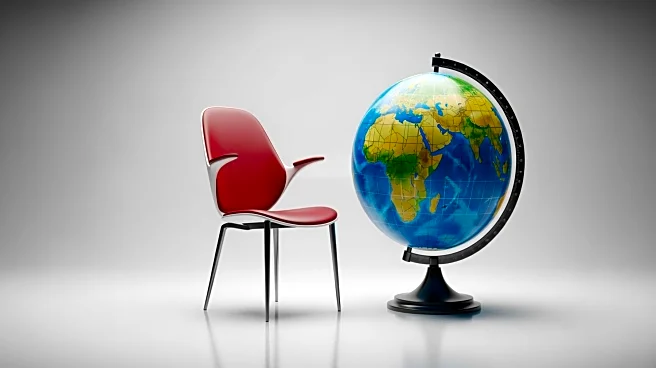What's Happening?
IKEA has announced price hikes on several big-ticket items as a direct result of President Trump's tariffs on furniture. These tariffs, which include taxes on wood, timber, upholstered furniture, and kitchen
cabinets, have forced IKEA to adjust its pricing strategy after previously absorbing the additional costs. The tariffs are set to increase further next year, affecting IKEA's ability to maintain low prices. The company has been striving to keep costs down, but the new tariffs have made it challenging to continue this approach. IKEA's sales have seen a slight decline, and the company is now focusing on expanding its network of U.S. suppliers to mitigate the impact of these tariffs.
Why It's Important?
The price increases at IKEA highlight the broader economic impact of President Trump's tariffs on consumers and retailers. As tariffs raise the cost of imported goods, companies like IKEA are compelled to pass these costs onto consumers, potentially leading to higher inflation rates. This situation underscores the challenges faced by retailers in maintaining affordability amidst economic uncertainty. The tariffs also emphasize the importance of domestic manufacturing and supply chain adjustments as companies seek to reduce dependency on imported goods. Consumers may experience reduced purchasing power as prices rise, affecting overall consumer spending and economic growth.
What's Next?
As the tariffs continue to affect pricing, IKEA and other retailers may further adjust their supply chains to increase domestic production and sourcing. This shift could lead to more investment in U.S. manufacturing and job creation. Additionally, consumers might alter their spending habits, prioritizing essential purchases over discretionary items. Retailers will need to balance cost increases with maintaining customer satisfaction and loyalty. The ongoing government shutdown may delay further economic data releases, complicating the assessment of inflation trends and consumer behavior.
Beyond the Headlines
The tariffs imposed by President Trump could lead to long-term shifts in global trade dynamics, encouraging companies to rethink their international sourcing strategies. This situation may also prompt discussions on the ethical implications of tariffs and their impact on consumer welfare. As companies adapt to these changes, there could be increased focus on sustainable and ethical sourcing practices, aligning with global sustainability goals.










